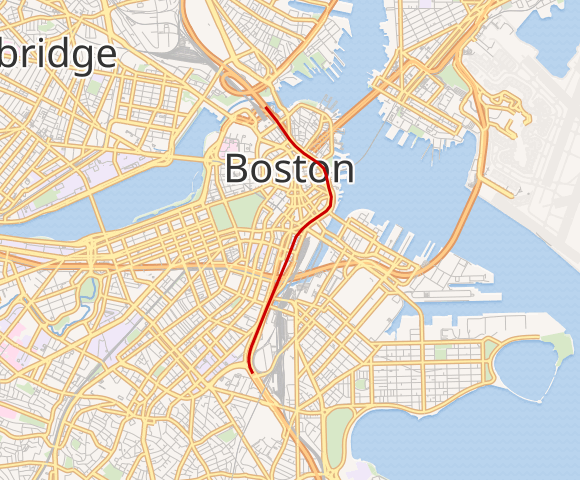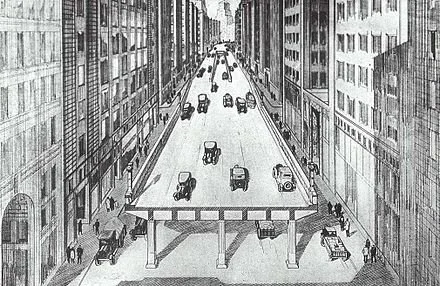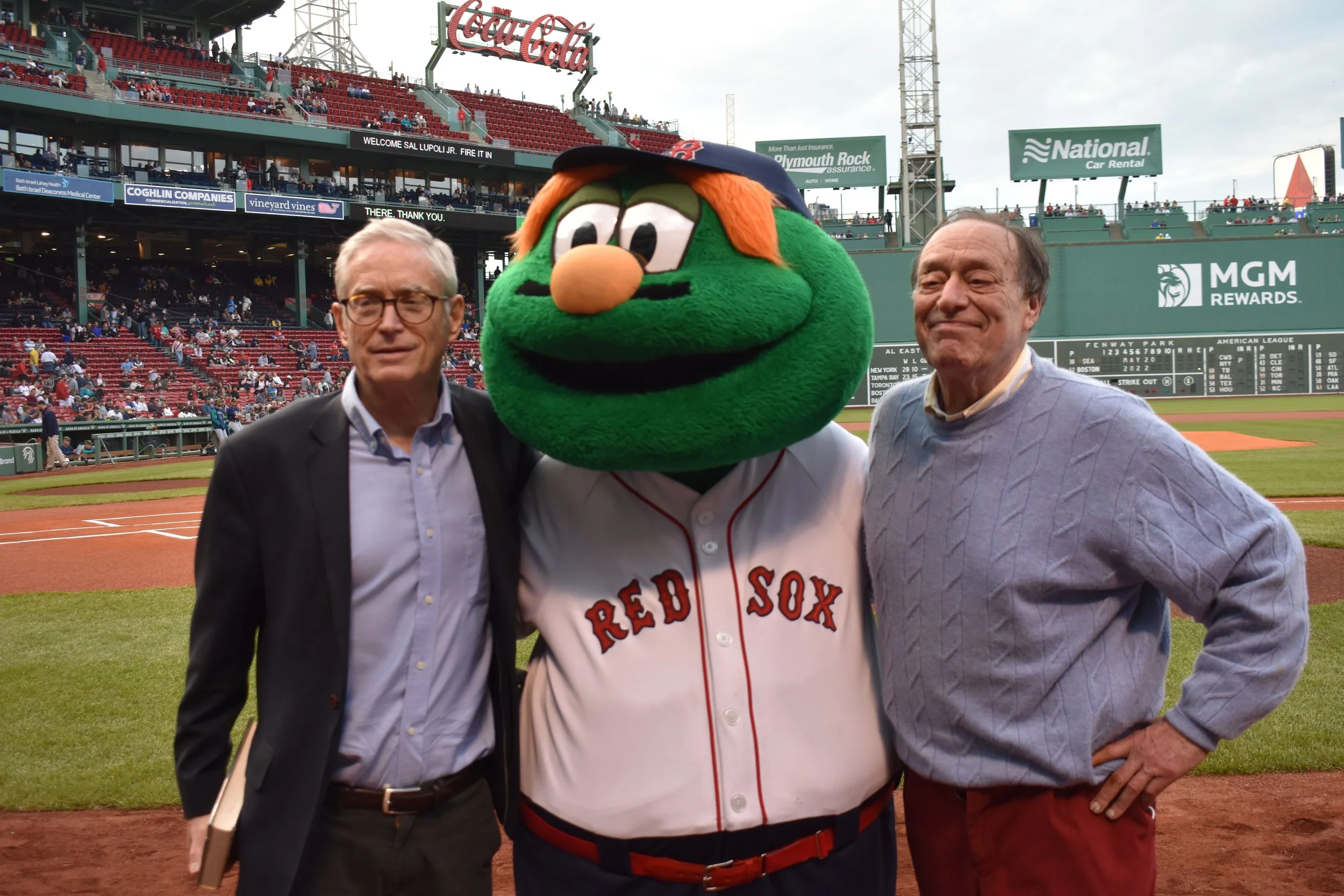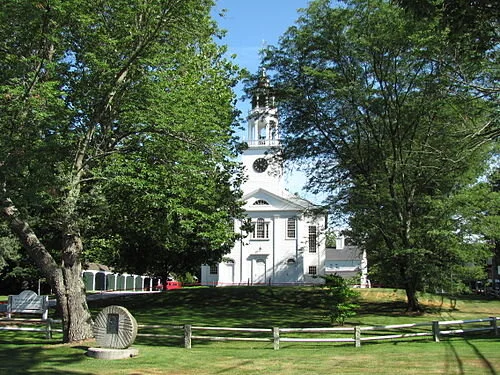
‘Oh what a town to get lost in’
Central Artery is in red.
1920 plan for the Central Artery.
Adapted from Robert Whitcomb’s May 22 “Digital Diary,’’ in GoLocal24.com
I drove up through Boston to Medford, Mass., on May 22 to have dinner with a niece, her husband and their son (8) and daughter (11). I did so with some trepidation because Boston and its inner suburbs have such tangles of streets and bad/confusing/nonexistent signage that GPS often can’t handle it in any coherent way and maps on paper tend to be outdated. And indeed, it was tough to find the restaurant on the Fellsway.
“Boston, Boston, Boston/Oh what a town to get lost in” as an old song goes. I lived in the city in 1970-71, and had jobs there in the ‘60s, and it doesn’t seem to be less confusing than it was back then, whatever the grandeur and promises of the Big Dig projects.
Greater Bostonians, like Rhode Islanders, are infamous for bad driving – not signaling, accelerating without warning on the right, swerving and so on. But the former are worse because they commit these sins at higher speeds.
Having dinner with children, especially bright, engaging ones like the ones mentioned above is fun, but it’s always good to bring games and reading materials for them. Few things are as boring to children as being trapped at a table for a long meal with adults while impatiently awaiting dessert.
At Fenway: Robert Whitcomb (left), the Sox’ Wally mascot and Boston publisher David Jacobs before the May 20 Mariners game.
However confusing Boston is, I tip my hat to the efficiency of the Boston Red Sox. Boston’s biggest weekly paper, The Boston Guardian, on whose little board I sit, was being honored, with other community organizations, in a pre-game event on the field at Fenway Park, on May 20, just before a game with the Seattle Mariners. (Boston won.) I’ve rarely seen such smooth coordination in moving people (including me) onto and off the field for the photo ops, etc.
It was comforting – sort of -- to see the police snipers on the roof of the stadium, ready for a terrorist attack or just another deranged young man with an assault rifle he just bought at Walmart. “Aren’t you happy they’re up there?’’ one of the photographers said.
I had to head back to Providence before the game ended and so had to leave the fancy lounge in the nose-bleed section above Fenway’s stands before Sox and Boston Globe principal owner John Henry showed up and played the guitar for our little group. He’s become my hero for supporting bookstores.
Boston can be beautiful, if exasperating! I fondly remember from the ‘60s running around the still somewhat Dickensian “Hub’’ on job errands, many of which I’d volunteer for to get out of stuffy offices, first in a shipping company on the waterfront and then at the gritty tabloid newspaper the Record American. I’d go to the tiny local stock exchange to pick up the day’s trading records or to the glorious State House to get something from a politician or a bureaucrat and nip into an ice-cream shop (or, as they were often spelled then, shoppe) for myself and into tobacco stores to buy cigarettes and cigars for my older co-workers. Occasionally I’d pick up a bag of peanuts to feed the rapacious pigeons on the Boston Common.
I did most of this walking, which is far and away the best way to get around the city.
Less separation between the sexes, please
Illustration from An Appeal in Favor of that Class of Americans Called Africans, by Lydia M. Child
“The fact is, reasonable and kind treatment will generally produce a great and beneficial change in vicious animals as well as in vicious men.’’
xxx
“The nearer society approaches to divine order, the less separation will there be in the characters, duties, and pursuits of men and women. Women will not become less gentle and graceful, but men will become more so. Women will not neglect the care and education of their children, but men will find themselves ennobled and refined by sharing those duties with them; and will receive, in return, co-operation and sympathy in the discharge of various other duties, now deemed inappropriate to women. The more women become rational companions, partners in business and in thought, as well as in affection and amusement, the more highly will men appreciate home—that blessed word, which opens to the human heart the most perfect glimpse of Heaven, and helps to carry it thither, as on an angel’s wings. . . .’’
— 1843 remarks by Lydia M. Child (1802-1880), author, editor, abolitionist and defender of the rights of Native Americans. She was born in Medford, Mass., and died in Wayland, Mass.
The First Parish Church (Unitarian) in Wayland, Lydia Child’s church there.





